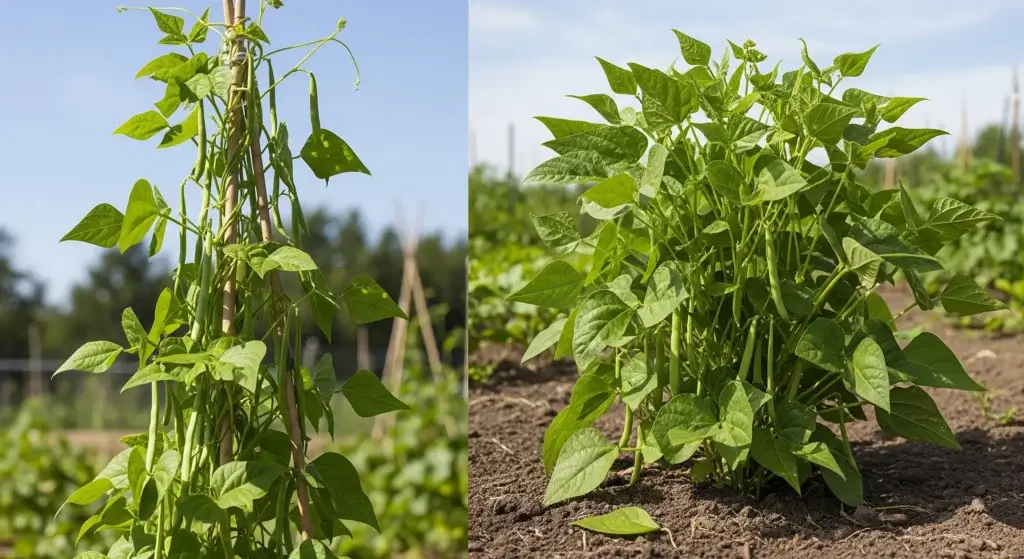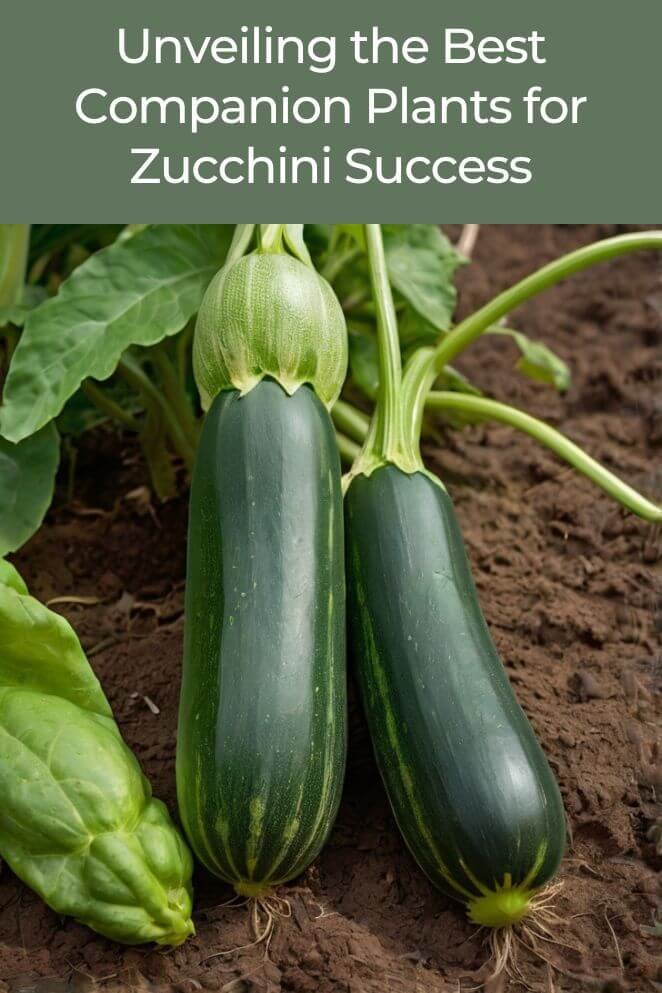
Zucchini, a versatile and productive vegetable, is a favorite among gardeners.
Whether you’re a seasoned gardener or a newbie, companion planting can significantly enhance your zucchini crop.
Companion planting involves growing different plants together to benefit one or both of them.
This guide will explore the benefits of companion planting, the best plants to pair with zucchini, and practical tips to maximize your garden’s yield.
Benefits of Companion Planting
Companion planting is a smart gardening method where certain plants are grown together to help each other thrive.
Here’s how it can make your garden healthier and more productive:
Pest control
Some plants naturally keep pests away from your crops.
For instance, marigolds have a scent that repels aphids and nematodes, which are pests that can harm plants like zucchini.
By planting marigolds near your zucchini, you can protect them without using chemicals.
- Read also: A Comprehensive Guide: How to Harvest Your Zucchini Plants
- Read also: A Comprehensive Guide: Tips on How to Improve Soil Drainage
Improved pollination
Certain companion plants attract helpful insects like bees and butterflies.
These insects are essential for pollinating zucchini flowers, which leads to better fruit growth.
Good pollination ensures that your zucchini plants produce more and healthier vegetables.
Enhanced growth
Companion plants can improve soil quality in different ways.
Some plants, like beans and peas, add nitrogen to the soil, which zucchini plants need for healthy growth.
Others with deep roots break up compacted soil, improving water drainage and allowing zucchini roots to spread easily.
Plants that provide shade can protect zucchini from too much sun, helping them grow better and produce more fruits.
Disease prevention
Growing certain plants together can prevent diseases.
Some plants act as a natural barrier, while others release substances that keep away harmful pathogens.
For example, planting onions or garlic near zucchini can ward off pests and diseases that affect both plants.
This helps keep your garden plants healthier and reduces the risk of diseases spreading.
Efficient use of space
Companion planting lets you use your garden space more effectively.
You can plant vertically by growing climbing plants like beans alongside zucchini on trellises.
Intercropping, where different plants are grown together in the same space, helps maximize your harvests without needing extra room.
This means you can grow more types of plants and get more produce from your garden.
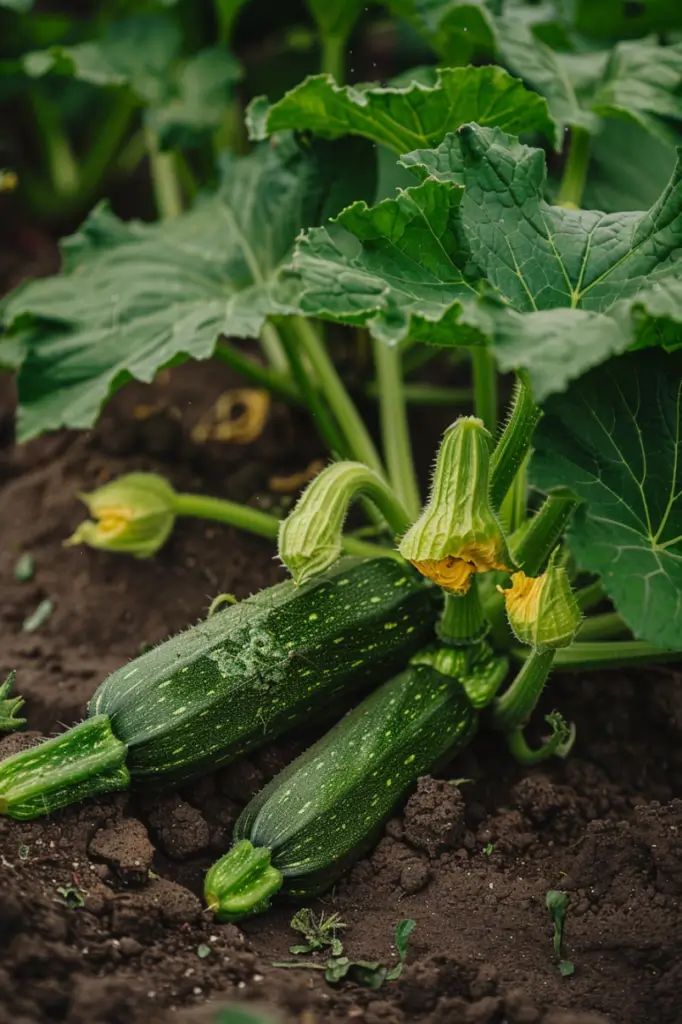
Best Companion Plants for Zucchini
Choosing the right companion plants for zucchini can make a significant difference in the health and productivity of your garden.
Here are some of the best options:
Nasturtiums
Nasturtiums are flowers that attract away aphids, which are pests that can harm zucchini plants.
By drawing aphids away from your zucchini, nasturtiums help protect them.
They also deter other pests like whiteflies and squash bugs, making them excellent companions for pest control.
Marigolds
Marigolds are well-known for their ability to repel pests.
They emit a scent that keeps nematodes and other harmful insects away from zucchini plants.
Planting marigolds near your zucchini can reduce the risk of pest damage without using chemical pesticides.
Radishes
Radishes serve as a trap crop, attracting pests away from zucchini.
They draw insects that might otherwise attack zucchini plants, helping to preserve the health of your crop.
Additionally, radishes break up compacted soil with their roots, improving soil structure and aiding zucchini root growth.
Borage
Borage is an herb that attracts pollinators like bees and beneficial insects to your garden.
These insects help pollinate zucchini flowers, leading to better fruit production.
Borage also enhances soil health by accumulating nutrients and improving soil structure, which can boost the flavor and growth of zucchini.
Beans
Beans are beneficial because they fix nitrogen in the soil, enriching it with essential nutrients that zucchini plants need to grow well.
Nitrogen is crucial for healthy leaf and stem development, ensuring robust growth and productivity.
Beans also provide shade, which helps conserve soil moisture and creates a favorable microclimate for zucchini.
Corn
Corn serves a dual purpose in companion planting with zucchini.
It acts as a natural trellis for zucchini vines to climb, saving space in your garden.
This vertical growth also improves air circulation around zucchini plants, reducing the risk of fungal diseases.
Corn and zucchini together create a harmonious garden environment.
Peas
Similar to beans, peas also fix nitrogen in the soil, enhancing soil fertility for zucchini plants.
Planting peas alongside zucchini supports healthy growth and improves overall soil quality.
Peas are easy to grow together with zucchini and contribute to a diverse and thriving garden ecosystem.
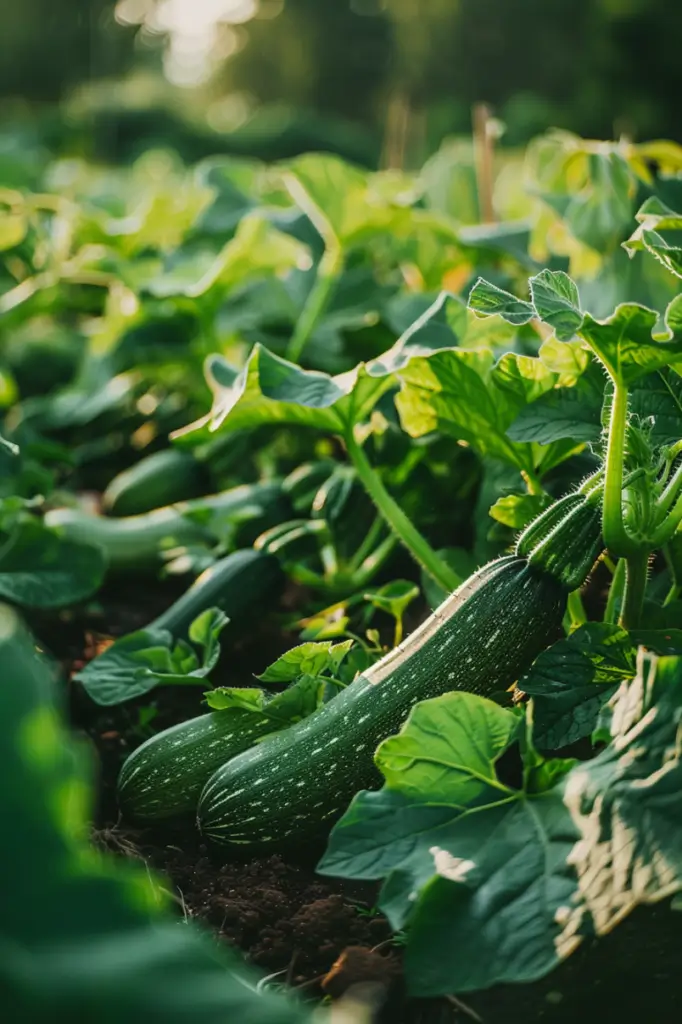
Tips for Companion Planting with Zucchini
To get the most out of companion planting, follow these practical tips:
Plan your garden layout
When planning your garden, consider the growth habits and space requirements of each plant.
For example, tall plants like corn should be planted where they won’t shade out shorter companion plants such as radishes or marigolds.
This ensures that each plant gets enough sunlight and space to thrive without competing with others.
Rotate crops
Avoid planting zucchini in the same spot year after year.
Crop rotation helps maintain soil fertility and reduces the buildup of pests and diseases specific to zucchini.
Rotate zucchini with different types of plants each season to keep your garden healthy and productive.
Intercrop wisely
Pair zucchini with companion plants that complement each other.
For instance, plant fast-growing crops like radishes or lettuce between rows of slower-growing zucchini.
Harvesting the quick-growing plants before they overshadow the zucchini allows space for the zucchini to expand.
Provide adequate watering
Different plants have varying water needs, so it’s important to water them accordingly.
Zucchini and most of its companions prefer consistent moisture, especially during hot weather.
Adjust your watering schedule to meet the needs of all plants in your garden to prevent stress and ensure optimal growth.
Monitor for pests and diseases
Regularly inspect your plants for signs of pests like aphids or diseases such as powdery mildew.
Early detection allows for prompt intervention, which can prevent issues from spreading and damaging your crops.
Companion planting can help deter pests, but vigilance is still essential for maintaining plant health.
Mulch and weed
Apply mulch around your plants to retain soil moisture, regulate soil temperature, and suppress weed growth.
Weeds compete with companion plants for nutrients and water, so keeping the garden bed mulched and weed-free reduces competition and minimizes pest habitats.
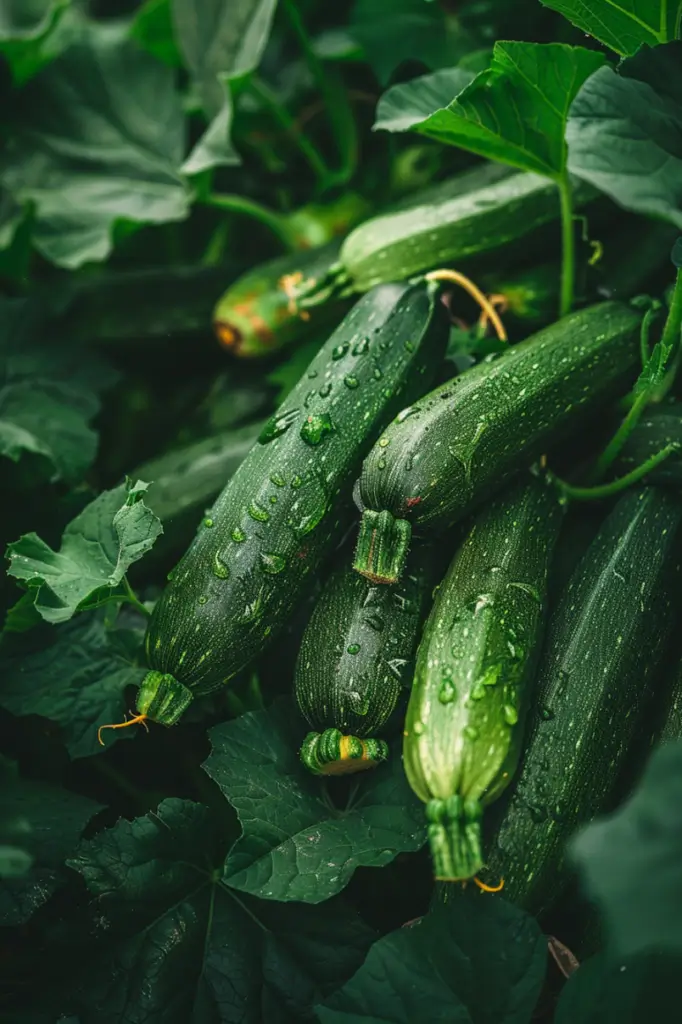
- Read also: The Ultimate Guide to Companion Plant for Luscious Potatoes
- Read also: Unveiling the Best Companion Plants for Luscious Cucumbers
Conclusion
Companion planting with zucchini offers numerous benefits, from pest control and improved pollination to enhanced growth and efficient use of space.
By choosing the right companion plants and following practical gardening tips, you can enjoy a bountiful and healthy zucchini harvest.
Experiment with different combinations to see what works best in your garden and reap the rewards of a well-planned companion planting strategy.


